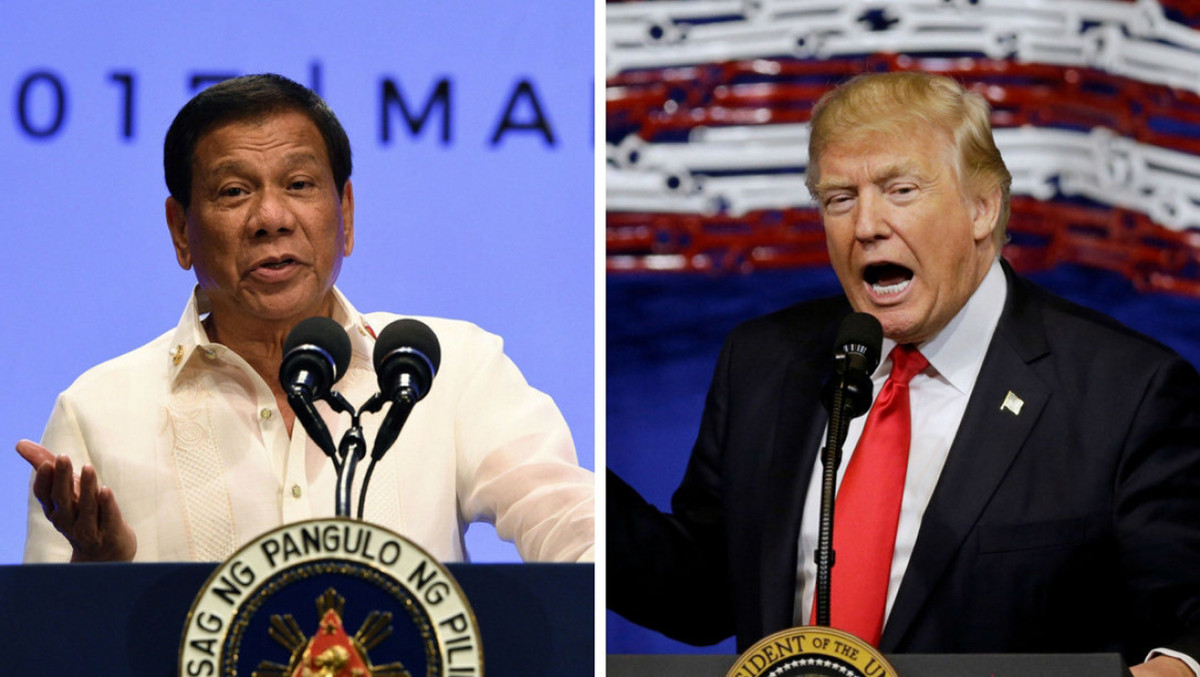President Trump invites Filipino President Duterte to the White House
The president wants to discuss North Korea with man facing charges for mass murder and crimes against humanity
More stories from Deanna Kolell
Photo by SUBMITTED
Filipino President Duterte has been referred to as the “Trump of Asia.”
President Donald Trump has a history of praising controversial and authoritarian world leaders.
This weekend, Trump tacked another name onto that ever-growing list. In an Oval Office interview Monday, the president said Rodrigo Duterte, President of the Philippines, has “been very, very tough on that drug problem.”
If by “tough” Trump means sanctioning the extrajudicial killings of over 7,000 suspected drug dealers and users by the police and vigilante groups, then he would be correct.
Duterte took office in June 2016 after running on a campaign promising to end the Philippines’ drug problem within three to six months. In order to accomplish this goal, he had said he would be “happy to slaughter” millions.
In addition, Duterte is facing a complaint in the International Criminal Court for mass murder and crimes against humanity, threatened to kill Filipino journalists, bragged about personally executing people and compared himself to Adolf Hitler.
This is the man Trump invited to the White House over the weekend.
In a controversial phone call, Trump also discussed the escalating nuclear crisis in North Korea. At least, that’s what the White House has said, stating the phone call was “very friendly” and their alliance is “now heading in a very positive direction.”
Needless to say, Trump came under fire for seemingly ignoring Duterte’s human rights violations. White House Chief of Staff Reince Preibus said the invitation was understandable because the United States must cooperate with other nations to confront North Korea.
“It doesn’t mean that human rights don’t matter,” Preibus said, “but what it does mean is that the issues facing us developing out of North Korea are so serious that we need cooperation at some level with as many partners in the area as we can get.”
In an interview with ABC, Preibus also said, “Obviously, we want to encourage (Duterte) to do better. But this call, the purpose of this call, is all about North Korea.”
What the White House considers doing better than illegally slaughtering thousands of civilians remains unclear. Equally as confusing is why Trump and the White House consider action against North Korea an adequate reason to collaborate with Duterte.
Kenneth Roth, executive director of Human Rights Watch, tweeted about the incident on April 30, saying Trump was using North Korea as a “cheap excuse” to invite Duterte to the White House because he “has no leverage over North Korea.”
In fact, Duterte himself said he would discourage Trump from confronting North Korea.
“I would just say, ‘Mr. President, please see to it that there’s no war because my region will suffer immensely,’” Duterte said of his Saturday phone call. “Everybody is worried.”
Apparently Duterte isn’t as worried about the suffering he has inflicted on his own people during his short 10 months in office. Despite his words and actions, 83 percent of Filipinos have “much trust” in him because his methods have produced results.
Many Filipinos see Duterte as one leader they can trust, as the exception to other corrupt leaders and the one way they can take their streets back.
Even if the majority of Filipinos approve of his actions, does Trump have a moral right to condemn them? Trump ran on a campaign to put “America first” but is he working with Duterte in anyone’s best interest?
At the very least, Trump should be wary of the reasons Duterte suddenly is willing to work together. During Obama’s presidency, he blatantly insulted the former president and drew closer to China and Russia, saying “America has lost now.”
One reason for Duterte’s softened stance on the U.S. could be he is seeking support for security and cooperation in the disputed South China Sea. However, this is an issue Trump seems to have pushed to the wayside in favor of focusing all efforts on North Korea.
Only time will tell if the Philippines will prove an ally against North Korea, but even if Trump is willing to work with Duterte, basic human rights should receive more consideration from him.
Condoning or ignoring Duterte’s flouting of the due process of law and valuing one life over another sends a less than positive message to the American public, its allies and the rest of the world.


